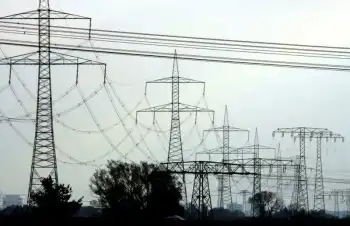Smart Grid helps FPL deliver power to consumers
- Bryan Olnick, Florida Power & Light FPL vice president of Customer Service for Smart Grid Solutions, discusses the roll out of Smart Grid technology and the benefits for FPL customers.
Florida Power & Light Company is rolling out advanced technology that will allow FPL to improve upon its already industry-leading reliable service and give its customers more control than ever over their energy bills.
The technology includes smart meters, which will replace the traditional meters on the side of their customers' home. Unlike the traditional meters, which required someone to visit the customers' home and read the energy use on a monthly basis, the smart meters use radio frequencies to communicate with our network. Automated feeder switches and other installed "smart grid" technologies on poles and lines are integrated with the smart meters, allowing FPL to reroute power in the case of an outage and minimize the number of customers who will be impacted. The upgrade to smart meters will also help the utility to see outages in the system to ensure a faster response time in restoring the customers' power.
What's more, FPL customers will have access to the information your smart meter delivers through an "energy dashboard" that gives customers a complete look at their account and their energy use by the month, day or hour. The energy dashboard will show customers their energy use history and even project future bills based on current use patterns.
Related News

Power bill cut for 22m Thailand houses
BANGKOK - The Thailand cabinet has formally approved energy authorities' decision to either waive or cut electricity charges for 22 million households where people are working at home because of the coronavirus disease.
Energy Minister Sontirat Sontijirawong said after the cabinet meeting on Tuesday that the ministers acknowledged the step taken by from the Energy Regulatory Commission, the Electricity Generating Authority of Thailand, the Metropolitan Electricity Authority and the Provincial Electricity Authority.
The measure would be valid for three months, from March to May, and cover 22 million households. It would cost the state 23.68 billion baht in lost revenue, he said.




